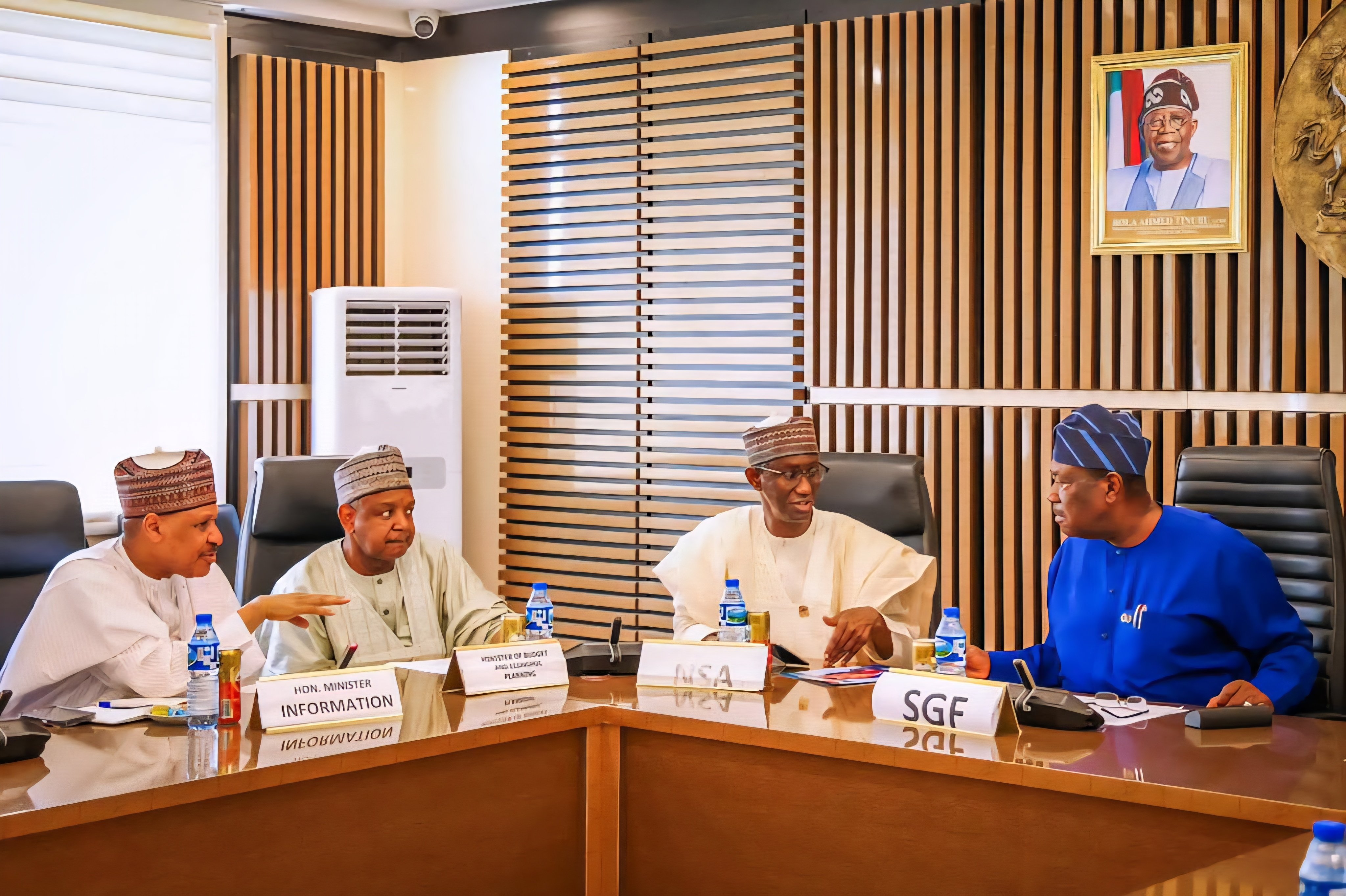
Tinubu Approves High-Powered Committee to Orchestrate State Burial for Buhari

In a solemn and historic move, President Bola Ahmed Tinubu has officially approved the establishment of an inter-ministerial committee to coordinate a full state burial for the late former President Muhammadu Buhari. The committee, which is to be chaired by the Secretary to the Government of the Federation (SGF), Senator George Akume, is tasked with ensuring that the final rites accorded to the former Nigerian leader are marked with the highest levels of national honour, dignity, and protocol.
The decision comes in the wake of the passing of President Buhari, whose death on Sunday, July 13, 2025, sent shockwaves across the nation and drew condolences from around the world. Known for his austere leadership style and polarizing political legacy, Buhari’s departure marks the end of an era in Nigerian politics, having served as both a military Head of State in the 1980s and later as a democratically elected president from 2015 to 2023. His death, confirmed after a protracted but closely guarded illness, has already spurred a nationwide period of mourning, with flags flown at half-mast and tributes pouring in from across the political spectrum.
President Tinubu, who served directly under Buhari as National Leader of the All Progressives Congress (APC) and later succeeded him, emphasized the importance of honouring Buhari with a befitting final ceremony reflective of his role in shaping Nigeria’s modern political landscape. According to a statement released by the Presidency and confirmed by Leadership News, the newly formed inter-ministerial committee is charged with overseeing the planning and execution of all activities relating to the state burial.
Senator George Akume, a seasoned political figure and former governor of Benue State, is to head the committee, bringing to the task decades of administrative experience and close ties to both Buhari and Tinubu’s administrations. Other members of the committee include high-ranking officials from the Ministries of Defence, Information, Foreign Affairs, Interior, Finance, and the Federal Capital Territory, as well as representatives from the Nigerian Armed Forces, the Nigeria Police Force, the Department of State Services (DSS), and the National Intelligence Agency (NIA).
Sources within the Presidency disclosed that preparations are already underway to host dignitaries from across Africa, Europe, Asia, and the Americas. Multiple heads of state, former presidents, top diplomats, and members of the international press are expected to attend what is anticipated to be one of the most elaborate state funerals in Nigeria’s history. The event is projected to span several days, including a national tribute session at the National Assembly, a prayer service at the National Mosque in Abuja, and a final interment in Buhari’s hometown of Daura, Katsina State, in accordance with Islamic rites and his family’s wishes.
Though details remain fluid, early drafts of the program suggest an elaborate ceremonial guard, military flyovers, and public processions. The Nigerian Army, Navy, and Air Force have all been put on high alert to prepare for their ceremonial duties, including the 21-gun salute that will conclude the final burial rites. Government offices across the federation are expected to close temporarily, and security will be heightened in Abuja and other key locations to manage the anticipated influx of dignitaries and mourners.
Meanwhile, the National Assembly has announced a seven-day suspension of legislative activities to honour the late president. Lawmakers across party lines observed a moment of silence during an emergency plenary and eulogized Buhari’s leadership, with Senate President Godswill Akpabio describing him as “a soldier for discipline, a statesman of integrity, and a man of deep conviction whose legacy will be debated for generations.” Speaker of the House of Representatives, Rt. Hon. Tajudeen Abbas, echoed similar sentiments, noting that Buhari “brought his military precision to civil leadership in a way that redefined governance, for better or worse.”
In the streets of Abuja, Lagos, Kano, and Port Harcourt, reactions to the news of the burial arrangements were mixed. While some citizens expressed appreciation for the government’s resolve to give Buhari a hero’s sendoff, others criticized the decision to invest significant resources into ceremonial proceedings amid ongoing economic challenges. “We cannot ignore the hardship in the land,” said Zainab Mohammed, a civil servant in Abuja. “I respect Buhari’s position as a former president, but I also think we should be modest in our approach.”
Nevertheless, Buhari’s loyal supporters, particularly in northern Nigeria, have welcomed the announcement of the state burial with a deep sense of pride and mourning. In Daura, the hometown of the late president, preparations have already begun, with roads being cleaned, local mosques offering special prayers, and traditional leaders coordinating with federal authorities to accommodate the expected influx of visitors. According to local media, residents are organizing community vigils and Quranic recitations in honour of their departed son.
Former aides and political allies of Buhari have also weighed in, with former Minister of Communications, Isa Pantami, describing the funeral as “a righteous obligation to a man who lived and died in service of Allah and country.” Bashir Ahmad, Buhari’s longtime aide, who first broke the news of the funeral plans on social media, urged Nigerians to maintain peace, decorum, and national unity in this time of grief.
International reactions have continued to pour in. U.S. President Joe Biden sent a message of condolence, lauding Buhari as a “strong African voice for anti-corruption and regional security,” while British Prime Minister Keir Starmer described him as “a complicated but consequential leader.” The African Union and ECOWAS have both announced plans to send official delegations, and a minute of silence was held during the opening session of the Pan-African Parliament this week in Johannesburg.
As Nigeria prepares to say goodbye to one of its most influential, and often controversial, leaders, the eyes of the world will be watching. The state burial of Muhammadu Buhari will not only mark the physical closure of a chapter but will also reignite discussions on his policies, principles, and impact—debates that are certain to linger long after the final prayers have been said and the ceremonial trumpets fall silent.
The inter-ministerial committee, under the leadership of Senator Akume, now bears the weighty responsibility of organizing a ceremony worthy of a man who, for better or worse, altered the course of Nigeria’s history. The nation, united in mourning, awaits its final chance to bid farewell to the former general, the austere reformer, the democratic president—Muhammadu Buhari.


